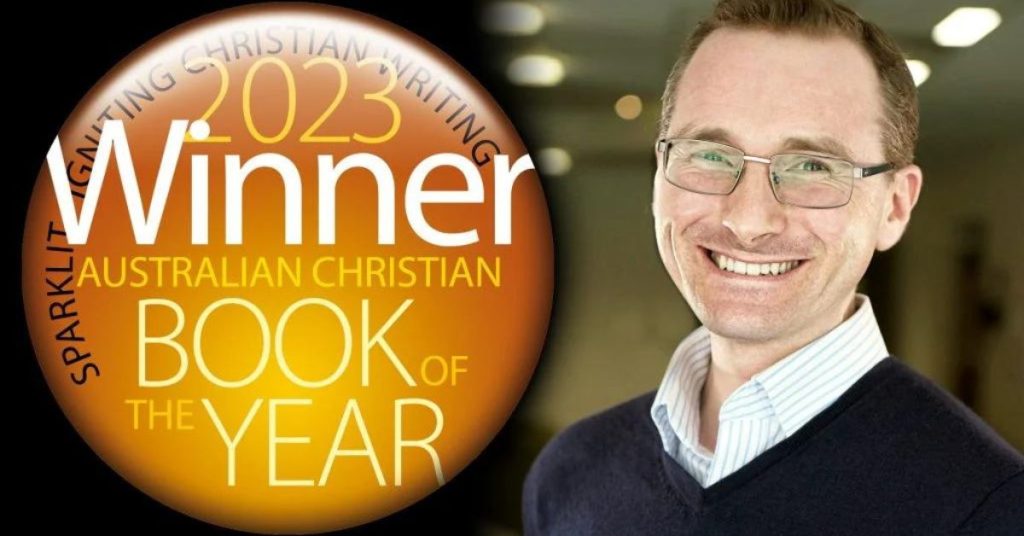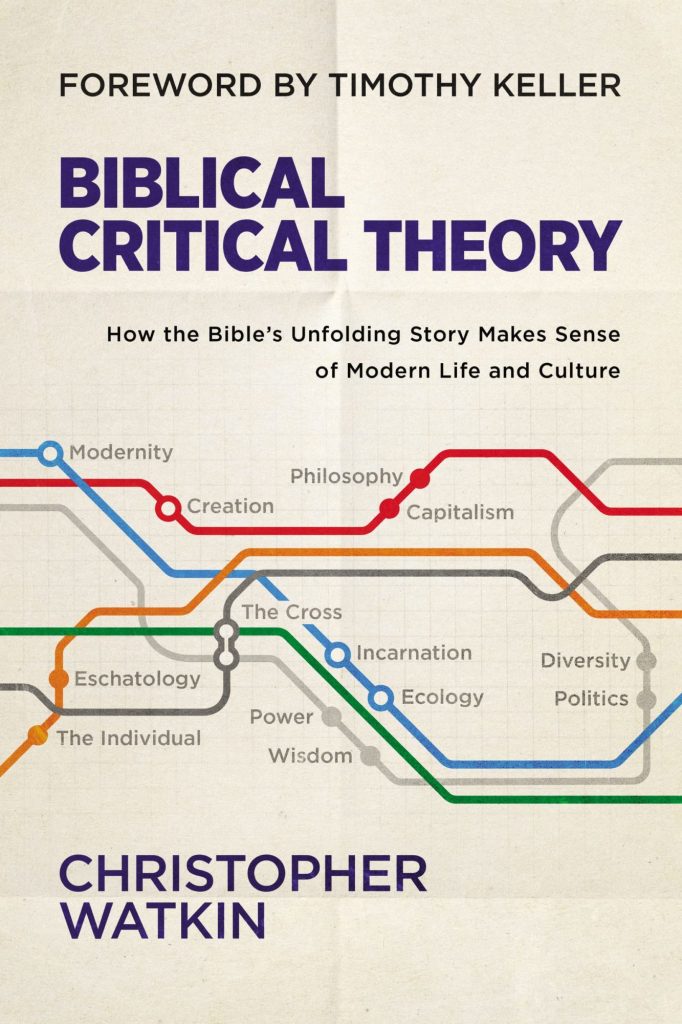By: Amy Cheng
We are all shaped by our culture, but not using the Bible to understand our culture is like giving away the keys to our mind to a stranger, according to an academic.
Christopher Watkin has won the award for this year’s Australian Christian Book of the Year for his book Biblical Critical Theory: How the Bible’s Unfolding Story Makes Sense of Modern Life and Culture.
The annual SparkLit awards recognises Christian writing and publishing that helps people discover Jesus in authentic and culturally meaningful ways.
In his book, Mr Watkin, who is also an associate professor at Monash University in Melbourne, uses the Bible to analyse and interpret contemporary Western culture.
This year’s judging panel included Greg Clarke, former CEO of Bible Society Australia and winner of the 2014 Australian Book of the Year, Dr Meredith Lake, writer and broadcaster and Catherine Place, a teacher who has written for various Catholic publications.
The judges said in their comments that Mr Watkin’s task for the book was “ambitious and daunting but Watkin’s confidence, curiosity and joy are contagious”.
“No matter where you happen to open the book, the author’s easy style, wide-ranging scholarship and generosity grab your attention and you are off, exploring the unfolding biblical narrative and how it cuts through assumptions and ideologies to speak to our times.”
“Sleepwalking Through Culture”
Everyone is shaped by their own culture, according to Mr Watkin, even if they’d like to think they stand apart from it.
“We all bear the marks of being born in a particular place at a particular time, in a culture with particular assumptions and dreams and hopes and fears, and we share most of those, whether we’re Christians or not,” he said.
He believes Christians should be using the Bible to help them understand culture and not doing so would be unwise.
“If we don’t do that, then we’re just sleepwalking through culture and letting other people decide for us what the good life should be,” he said.
“In the same way that you wouldn’t just give the keys of your house to an absolute stranger… you don’t want to give the keys of your mind and your heart away either to a society that you don’t know.”
Biblical Contributions in Public Debate
Although there are lots of big theological concepts in his book, such as trinity, sin and eschatology, Mr Watkin does not want that to intimidate people.
“The Bible is really unusual in the sense that a child can have a full and proper understanding of the gospel,” he said.
“They can be a proper Christian, not just a sort of nursery-slopes Christian but a full Christian in God’s family, with quite a relatively simple understanding of the core message of the Bible.
“But someone on the other end of the scale, like Augustine… can spend his whole life writing books about the gospel and just sort of scratch the surface.”
Mr Watkin’s aim for his book is to help people have a deeper appreciation of the Bible.
“I would like people to fall in love with God’s Word again or more deeply than they have before and see that there are riches throughout the whole Bible for understanding and engaging with modern culture,” he said.
“I’d like to give people a language and a posture to be able to provide robustly biblical but constructive, positive, fresh, often unexpected, contributions to big topics of public debate.”
A Way in Towards People’s Hearts
Having a biblical understanding of culture will give us a “way in” with people, Mr Watkin said.
“There’s a place to start where you can begin to show how the values that are being expressed in these particular instances are echoed in the Bible.”
However, he said it’s important for Christians to understand that they are not just affirming the similarities.
“Paul still says (in 1 Corinthians) that the message of the cross is foolishness to those looking for wisdom… there’s no sense that the biblical ideas will slip easily into the way that people are already thinking,” Mr Watkin said.
“If they really want to engage with these ideas seriously, there is a repentance that’s required; you’ve got to start looking for wisdom at the cross.”
Influences from Augustine
When writing this book, Mr Watkin was greatly influenced by The City of God, written by Augustine of Hippo, a theologian and philosopher; the book was written in response to allegations that Christianity caused the decline of Rome.
“Augustine positions himself really brilliantly as both an insider and an outsider to the culture… both of those are really, really necessary to do good cultural critique,” Mr Watkin said.
“You need to be an insider to understand how the culture looks to insiders… but then he’s an outsider to the culture as well because he looks at it with the eyes of someone whose understanding of the world is shaped by the Bible.”
Augustine also teaches in his book the importance of critiquing the whole of a culture, looking at Rome’s entertainment system, government, spirituality and politics, Mr Watkin said.
“I think what that shows is that the whole of that culture hangs together like an ecosystem, so in order to understand one bit of it, you’ve got to see how it fits in with the other bits.
“One danger of the cultural critique that we sometimes do is that we see ourselves as something like a SWAT team that parachutes in to culture to sort of neutralize a particular threat that’s out there.
“And then we lift ourselves out afterwards thinking we’ve done our job, but cultures don’t work like that; everything is organic, everything feeds off everything else.”
How to Use This Book

Mr Watkin doesn’t want to be too prescriptive about how people should be using his book Biblical Critical Theory, but he recommends that they read it from cover to cover, if they have the time, because it is a story.
“Each chapter builds on the other chapters; it’s like if the only Star Wars you’ve seen is The Empire Strikes Back and you haven’t seen A New Hope or The Return of the Jedi, then you don’t know how it begins and ends,” he said.
“You sort of get something from it, but it loses a lot because you don’t have the beginning and ending.”
As people are reading through the book, he has a question he’d like them to be thinking about.
“What I’d love people to be thinking, as they read the book, is how do these ideas, expressed by a white, middle-aged male philosopher dude, relate to me, whoever I am, and how would I express these ideas within my cultural context?”
The winner of this year’s Australian Christian Teen Writer Award went to Caleb MacLaren for his screenplay The Journey.
It is a modern twist on the Noah’s Ark story and follows the journey of four companions as they navigate an empty world devastated by an alien attack.
Article supplied with thanks to Hope Media.
Feature image: Photo by Kelly Sikkema on Unsplash
